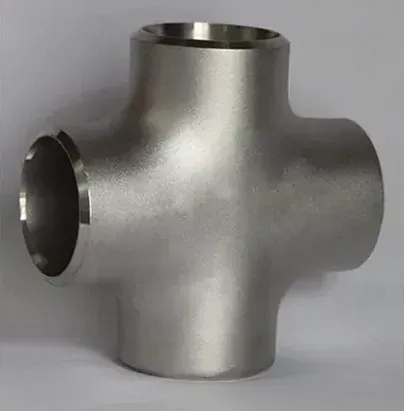-
Cangzhou Yulong Steel Co., Ltd.
-
Phone:
+86 13303177267 -
Email:
admin@ylsteelfittings.com
- English
- Arabic
- Italian
- Spanish
- Portuguese
- German
- kazakh
- Persian
- Greek
- French
- Russian
- Polish
- Thai
- Indonesian
- Vietnamese
- Zulu
- Korean
- Uzbek
- Hindi
- Serbian
- Malay
- Ukrainian
- Gujarati
- Haitian Creole
- hausa
- hawaiian
- Hebrew
- Miao
- Hungarian
- Icelandic
- igbo
- irish
- Japanese
- Javanese
- Kannada
- Khmer
- Rwandese
- Afrikaans
- Albanian
- Amharic
- Armenian
- Azerbaijani
- Basque
- Belarusian
- Bengali
- Bosnian
- Bulgarian
- Catalan
- Cebuano
- China
- China (Taiwan)
- Corsican
- Croatian
- Czech
- Danish
- Esperanto
- Estonian
- Finnish
- Frisian
- Galician
- Georgian
- Kurdish
- Kyrgyz
- Lao
- Latin
- Latvian
- Lithuanian
- Luxembourgish
- Macedonian
- Malgashi
- Malayalam
- Maltese
- Maori
- Marathi
- Mongolian
- Myanmar
- Nepali
- Norwegian
- Norwegian
- Occitan
- Pashto
- Dutch
- Punjabi
- Romanian
- Samoan
- Scottish Gaelic
- Sesotho
- Shona
- Sindhi
- Sinhala
- Slovak
- Slovenian
- Somali
- Sundanese
- Swahili
- Swedish
- Tagalog
- Tajik
- Tamil
- Tatar
- Telugu
- Turkish
- Turkmen
- Urdu
- Uighur
- Welsh
- Bantu
- Yiddish
- Yoruba

Nov . 08, 2024 05:20 Back to list
API 5L Specification Overview for Pipeline Steel Standards and Requirements
Understanding the API 5L Specification A Comprehensive Overview
API 5L, developed by the American Petroleum Institute, is an international standard for pipeline transportation systems, specifically for steel pipes used in the oil and gas industry. This specification provides guidelines for several essential aspects of pipeline production, design, and quality assurance. Its importance cannot be overstated, as it plays a crucial role in ensuring safety, reliability, and efficiency in transporting hydrocarbons over long distances.
Scope and Purpose of API 5L
The primary aim of API 5L is to define the requirements for manufacturing seamless and welded pipes to be used in the transportation of gas, water, and oil in both onshore and offshore applications. This standard outlines the grades of steel used in these pipes, along with the necessary mechanical properties, chemical compositions, and manufacturing processes.
The specification encompasses various grades, which are classified into Categories A and B. Grade A is commonly referred to as L (low), while grades B, X (extra), and higher are designed for more demanding service requirements, where factors like pressure, temperature, and corrosive environments come into play. The higher the grade, the more stringent the criteria for yield strength, tensile strength, and impact toughness.
Key Sections of API 5L
The API 5L specification is comprehensive, covering several critical aspects
1. Pipe Specifications and Grades API 5L specifies different grades of pipes, including LSAW (Longitudinal Submerged Arc Welded), SSAW (Spiral Submerged Arc Welded), and seamless pipes. Each grade has specific mechanical properties that are necessary for its intended use, ensuring that it can withstand the required operational conditions.
2. Chemical Composition The specification details the acceptable chemical compositions for each grade of pipe. This includes the maximum and minimum percentages of elements like carbon, manganese, phosphorus, sulfur, and silicon. Adhering to these limits is crucial for ensuring the pipe’s performance characteristics and resistance to corrosion.
api 5l specification

3. Testing Requirements API 5L outlines a series of testing protocols to determine a pipe’s suitability for service. This includes non-destructive testing (NDT), which evaluates the integrity of the pipes without causing damage. Tests such as tensile testing, impact testing, and hydrostatic testing are essential for verifying that the pipes meet the necessary standards.
4. Coating and Protection The standard also addresses the requirements for external coatings and protection methods to prevent corrosion, which is a significant risk in pipeline applications. Proper coating extends the lifespan of the pipes and enhances their reliability.
5. Documentation and Certification API 5L mandates thorough documentation and certification processes to ensure traceability and accountability throughout the production and supply chain. Manufacturers are required to maintain records that demonstrate compliance with the specification, providing customers with confidence in the quality of the product.
Importance of Compliance
Compliance with the API 5L specification is imperative for companies in the oil and gas sector. Adhering to these standards not only ensures the safety of operations but also conforms to regulatory requirements. Pipelines that meet API 5L specifications are less likely to suffer failures that could lead to hazardous spills or leaks, which can have devastating environmental impacts.
Furthermore, using API 5L compliant pipes can enhance the performance efficiency of pipeline systems. The rigorous testing and quality assurance linked with API 5L contribute to a more reliable transportation system, ultimately leading to reduced downtime and operational costs for companies.
Conclusion
API 5L is a vital specification that sets the benchmark for steel pipes used in the oil and gas industry. By defining the requirements for grades, chemical composition, testing procedures, and documentation, API 5L ensures the integrity, safety, and performance of pipeline systems globally. As the industry continues to evolve and face new challenges, the principles encapsulated within API 5L will remain central to promoting best practices in pipeline transportation. Through adhering to these rigorous standards, companies can ensure sustainable operations that prioritize safety and environmental stewardship.
Latest news
-
ANSI 150P SS304 SO FLANGE
NewsFeb.14,2025
-
ASTM A333GR6 STEEL PIPE
NewsJan.20,2025
-
ANSI B16.5 WELDING NECK FLANGE
NewsJan.15,2026
-
ANSI B16.5 SLIP-ON FLANGE
NewsApr.19,2024
-
SABS 1123 FLANGE
NewsJan.15,2025
-
DIN86044 PLATE FLANGE
NewsApr.19,2024
-
DIN2527 BLIND FLANGE
NewsApr.12,2024
-
JIS B2311 Butt-Welding Fittings LR/SR 45°/90° /180°Seamless/Weld
NewsApr.23,2024











